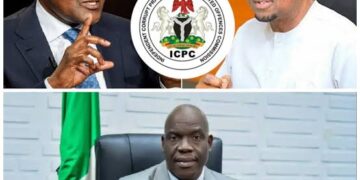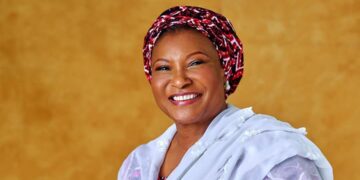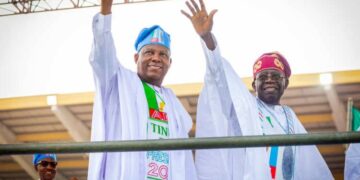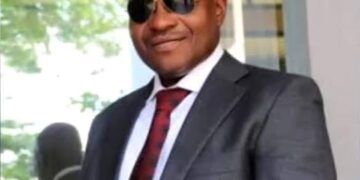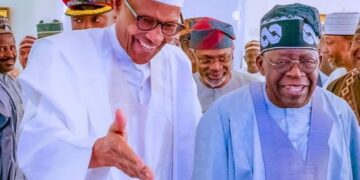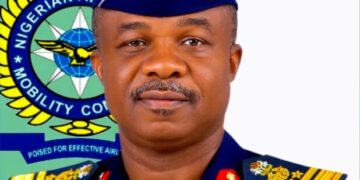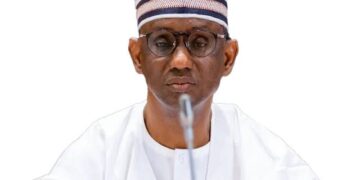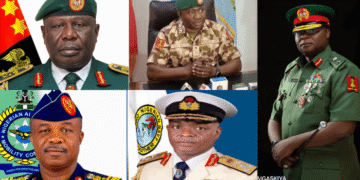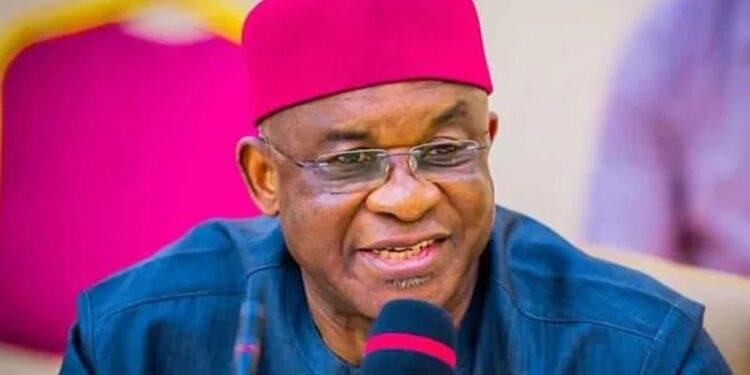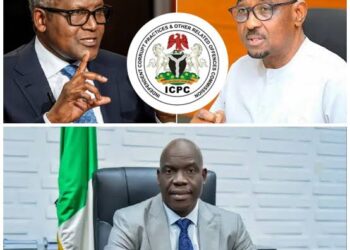Keynote Address Delivered by Distinguished Senator David Bonaventure Mark, GCON, Former President of the Senate of the Federal Republic of Nigeria at the 3rd Plenary Session of Northern Political Consultative Group Held at Ladi Kwali Hall, Abuja Continental Hotel on July 26th 2025.
Your Excellencies, Distinguished Leaders and Elders, Ladies and Gentlemen,
1.1. It is both an honour and a privilege to stand before you today to speak on a matter that defines our present and may shape our future — the urgency and the efficacy of unity and social cohesion as the solution to the challenges facing our region.
1.2. The North as we know is a land of rich history and mineral resources, fertile land for agriculture, diverse cultures, and immense potential. In spite of these blessings, we are confronted with deep-seated challenges of insecurity, poverty, ethnic and religious tensions, political fragmentation, social and economic stagnation. These challenges did not develop overnight nor will they disappear until we resolve to take deliberate, collective and decisive action.
We must first admit that we are the architects of our problems, we must stop the blame game if we truly and genuinely want to find a lasting solution.
1.3. Division has cost us progress, while indifference and inaction have continued to deepen our division. If we are to overcome our present travails, we must return to the principles of justice, equity, mutual respect, and shared purpose that once made Northern Nigeria a beacon of hope, peace, unity and development.
2. The Challenges Before Us
2.1. Over the last decade, banditry, terrorism, insurgency and communal clashes have turned our villages into battlegrounds, displacing millions and crippling our economy. Despite its vast resources, the North remains the poorest region in the country, with alarming rates of illiteracy, unemployment and poor infrastructure. Mistrust between and among ethnic groups and religious communities has been exploited by selfish and desperate interests, leading to violent conflicts. Instead of uniting for common goals, our elites often prioritize personal and sectional interests over collective progress.
2.2. The challenges facing Northern Nigeria are intricately interconnected. Insecurity scares away investors which, in turn, deepens poverty. Poverty fuels desperation and crime. Ethnic divisions weaken our collective resolve to demand good governance. Political fragmentation ensures that no meaningful development takes root in our region. This is not the North that we inherited.
2.3. But there is a path that could lead to a better future for Northern Nigeria and this path begins with our collective decision to abandon division and embrace unity. We must tone down our inflammable statements and return to that golden era when we used to have genuine and deep respect for each other. After all, not long ago we treated each other, first and foremost, as brothers and sisters; when the appellation “Northerner” captured our collective essence before our ethnic, sectional and religious affiliations.
2.4. Some of you in the audience may still remember, with nostalgia, the old Northern Region, under the leadership of Sir Ahmadu Bello (Sardauna of Sokoto), when the North actually thrived because it was built on equity and justice. The Sardauna did not see Hausa, Fulani, Kanuri, Igala, Tiv, Idoma, Nupe, Okun and others. The only citizens he saw were Northerners. He invested in education, agriculture, and infrastructure, not for one group, but for the collective.
2.5. Today, we must ask ourselves, where did we go wrong? When did we abandon the philosophy of “One North, One People”. When did tribalism and religious bigotry begin to define our essence and identity?
3. Rebuilding Unity and Social Cohesion
3.1. To reclaim our greatness, we must rethink and reconsider our individual utterances and actions. After this meeting, we should undertake the following:
a. As leaders, as politicians or just as ordinary citizens, all of us must consider it our sacred duty to be bridge-builders, not dividers in our local communities. Too often, as politicians, we exploit ethnic and religious differences in order to win elections, and thereafter, we leave our people hopelessly divided. The destructive weaponisation of ethnicity and religion we saw in the last election is unacceptable. This is where the African Democratic Congress (ADC) will make the difference. For us, politics is about service and not manipulation.
b. The major cause of division in Northern Nigeria is the perception of marginalization. We must ensure fairness in appointments, resource allocation, and opportunities. Resentment grows when any group feels excluded. But when all see themselves as equal stakeholders, peace flourishes.
c. Ignorance is the biggest enemy of unity, social cohesion and development. We must invest in education that teaches our children the value of diversity. Let our schools, churches and mosques preach tolerance. Let our media promote stories of cooperation. For as long as we continue to treat investment in education with levity and frivolity, for that long shall we continue to reap poverty and insecurity.
d. As I said earlier, poverty fuels desperation and violence. By creating jobs, supporting agriculture, and empowering youth, we remove the incentives for crime and rebellion. A thriving economy is the best weapon against instability.
e. Our security challenges are self-inflicted. We cannot continue to expect solutions from elsewhere. Northern Nigeria used to be the safest part of Nigeria. There were no armed robbery, kidnapping, cultism or fraudsters, but today the story in the North is different. The Native Authority, the precursor of today’s Local Government Area, used to have an effective community policing infrastructure where villagers protect each other. We have to find a way to re-organize our people in their villages to return to these age-old and tested practices.
f. Wherever conflicts arise, we must choose dialogue over inflammable rhetoric, peace mediation over mutual annihilation, repentance and forgiveness over vengeance. Too much blood has been shed in our land. It is time to make peace.
4. Call to Action
Distinguished leaders, the time for lamentation is over. The North is bleeding profusely, and we are the only ones who can heal it. Let us commit today to:
• Reject hate speech and divisive politics.
• Invest in unifying projects—education, healthcare and infrastructure.
• Hold each other accountable for our actions and inactions.
• Shake hands across the divide and restore our bond of brotherhood.
If we do these, I have no doubt we will rebuild this region into a powerhouse of not just peace and social cohesion but also of economic progress, human ingenuity and compassion.
Thank you and God bless.

